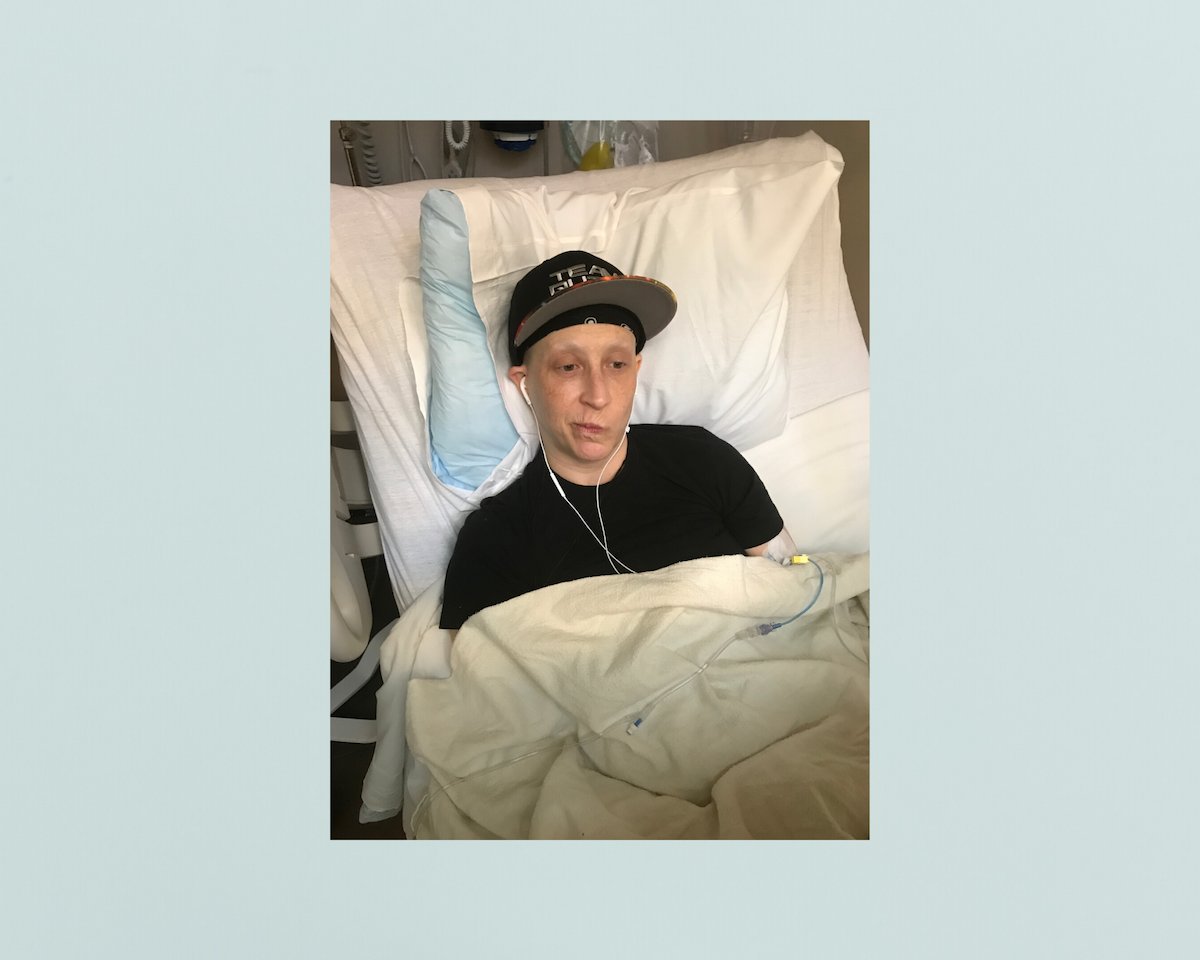There are certain phrases I expect in life:
“Your taxes are late.”
“You ate all my chocolate.”
“You don’t need that much coffee.”
And phrases I never expected:
“Good morning. You have cancer.”
Look, I seriously doubt anyone is ever prepared to hear the C-word. But my diagnosis came as a particular shock for one specific reason.
A geneticist (at a very well-respected cancer center on the east coast) said I was not considered a high-risk individual, and probably didn’t need to worry about cancer.
Lemme explain. Back around 2001 (when I was carefree, fresh-faced, and barely twenty years old), my mom used to accompany her BFF to chemo treatments. My mom’s bestie was battling breast cancer and they sat together during treatments, joking around and making the best of things. One day, a woman who worked at the hospital mentioned something about the BRCA gene, and my mom’s ears perked up.
According to Cancer.gov, “BRCA1 and BRCA2 are human genes that produce tumor suppressor proteins. These proteins help repair damaged DNA and, therefore, play a role in ensuring the stability of each cell’s genetic material. When either of these genes is mutated, or altered, such that its protein product is not made or does not function correctly, DNA damage may not be repaired properly. As a result, cells are more likely to develop additional genetic alterations that can lead to cancer.”
In simpler (and scarier) terms, BRCA1 makes carriers TEN TIMES more likely to develop breast or ovarian cancer. The BRCA mutation is especially prevalent in people with Ashkenazi Jewish heritage.
Since my father’s lineage falls into that category, my mom wondered if I should get tested for BRCA. She set up an appointment to chat with a geneticist.
The geneticist asked Mom if we had a family history of cancer.
“No,” my mom replied.
“Is there any known history of the BRCA gene?”
“No.”
The geneticist said there was no need to test me.
My mom had a bad feeling about it, but she didn’t insist on getting me tested. After all, the geneticist was a trained professional and worked for one of the best cancer hospitals in the country. Wouldn’t she know best?
Fast-forward to 2017.
I had off-and-on pains in my upper right abdomen for about six months. Since the pain was sporadic, I didn’t think anything of it. Eventually I got checked out at Urgent Care, and they did a basic blood panel. The doctor said she’d order an ultrasound if they found anything fishy in my blood work. I never heard back from her.
Two months later, I suddenly noticed my belly looked swollen. I felt nauseous. The only food I could choke down tasted weird. My father, a pathologist, urged me to go to the ER. He later confessed he knew I had ovarian cancer, as I exhibited the classic symptoms, but he didn’t want to frighten me (and he couldn’t be 100% certain without a biopsy).
I went to the ER and stayed overnight. I had an ultrasound, CT scan, x-rays, and blood work. The next morning, I got “the news” and met my Rockstar Cancer Ninja, a renowned, brilliant gynecological oncologist. He asked if I had any family history of cancer or the BRCA gene.
“No and no,” I murmured.
He said my case didn’t make sense. I was young and healthy. A thirty-six year-old woman with advanced ovarian cancer and no family history. He arranged for me to meet with a genetic counselor on my first day of chemo.
And meet we did. When the results came back a few days later…I learned I tested positive for the BRCA1 mutation.
Surprise!
My father got tested. His cousins got tested. My brother got tested. All of them, all men, all tested positive for BRCA1.
Surprise!
Things suddenly made sense.
That side of my family is male dominant. And this genetic mutation primarily causes breast and ovarian cancer, so all those men were silent carriers. In some cases, BRCA1 can lead to breast or prostate cancer in men, but in our case, it did not. I’m the first woman who’s developed cancer on that side of the family (that we know of).
So, dear friends, the point is this: family history isn’t necessarily the greatest indicator of cancer risk factor. Overall, yes, it’s an important one, but for me, it was irrelevant. The geneticist from 2001 told my mom I didn’t need to get tested based on our family history. We now see the error of that mindset.
It’s worth noting, though, that even if I’d known I’m BRCA-positive, I still would have developed cancer. But I also would have been on the lookout for early warning signs, and caught it much earlier. And I definitely would not have waited six months to get my stomach pains looked at.
Hindsight is 20/20, right?
Speaking of hindsight, I’m now focusing on foresight. I recently started volunteering for an organization called Ovarian Cancer Research Alliance (OCRA). They have a wonderful program called Survivors Teaching Students, which brings ovarian cancer survivors into medical education programs to share their stories of diagnosis, treatment, and survivorship. Medical students get to hear stories of triumph directly from survivors like me, adding a more humanized element of ovarian cancer and its brutal wrath.
I’ll never be able to go back and change my past. But through writing, speaking, and sharing my story, I hope to change someone else’s future.


